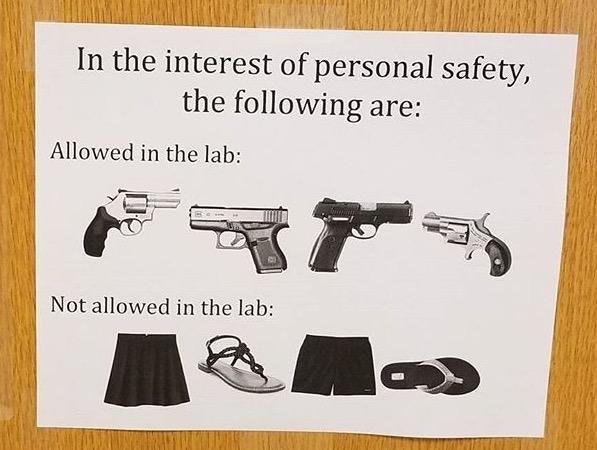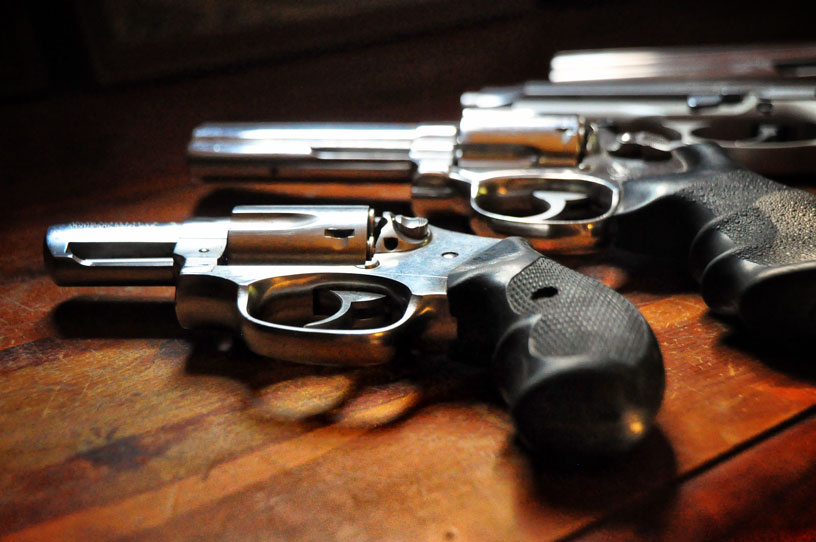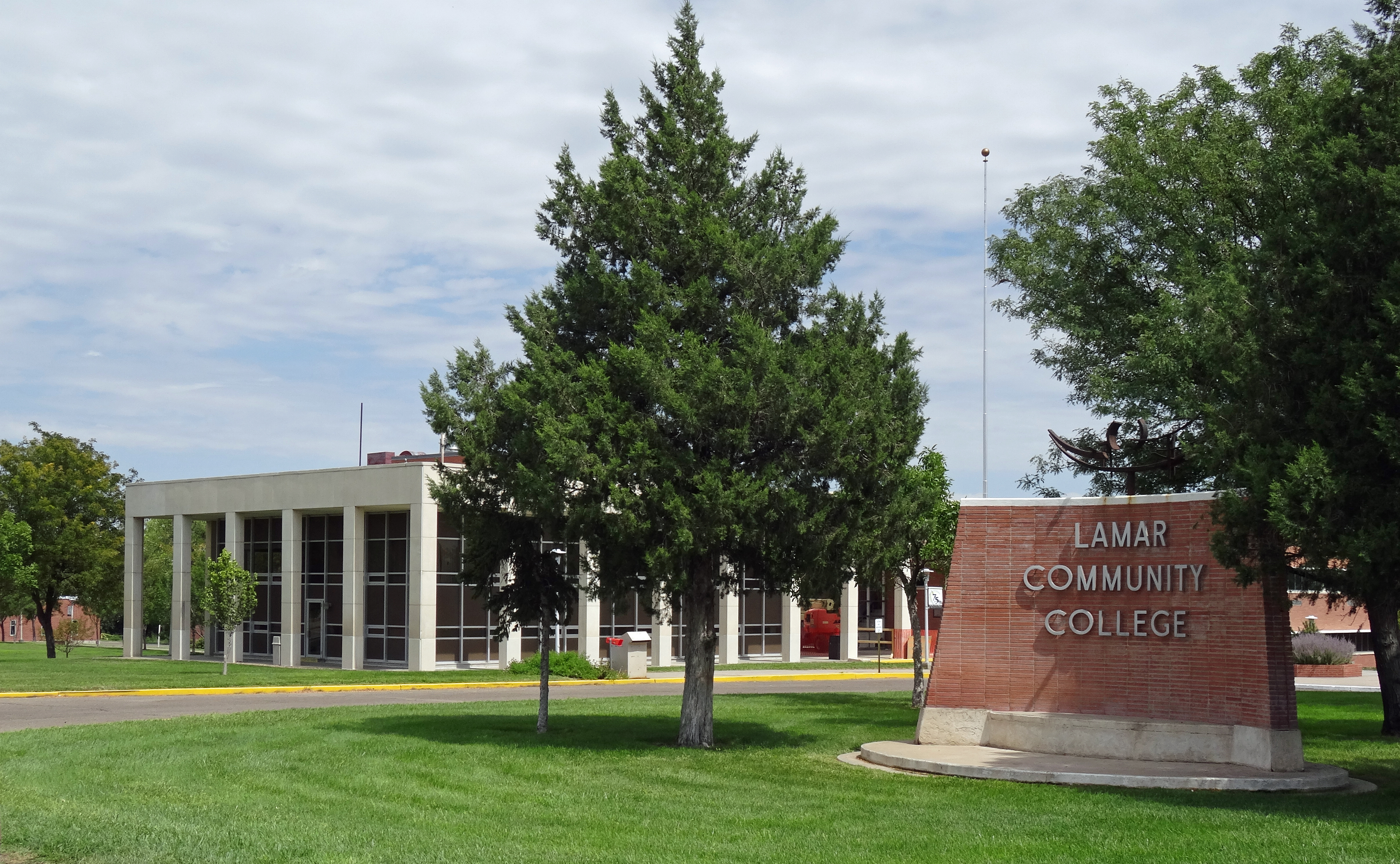This Sign Calls Attention To the Gun Debate on College Campuses

By:
A sign reportedly posted outside a lab at the University of Georgia rose to the top of Reddit on Thursday.
The sign reminds students that open-toed shoes, shorts, and loose clothing are not allowed in the lab, as they represent safety hazards that could put them at risk of catching fire or exposing their skin to chemical burns. But as of July 1, firearms are technically permitted.
 Reddit - reddit.com
Reddit - reddit.com
The sign highlights an ongoing debate about concealed carry policies at universities in the United States.
In May, Georgia became the 11th state to allow students and faculty to carry handguns on campus, with certain exceptions including student housing and sporting events.
Georgia Gov. Nathan Deal signed the concealed carry bill into law on March 31—about a year after he vetoed a similar proposal out of concern about the usefulness of guns on campus. In a statement in May 2016, Deal said that, historically, colleges "have been treated as sanctuaries of learning where firearms have not been allowed" and that departing from "such time-honored protections should require overwhelming justification."
.jpg?auto=format&crop=faces&fit=crop&q=60&w=736&ixlib=js-1.1.0) Wikimedia - wikimedia.org
Wikimedia - wikimedia.org
"This law, we think, is reckless," Andy Pelosi, executive director of The Campaign to Keep Guns Off Campus, told ATTN:. "It does not take into account some things, like laboratories and other sensitive places on campus where guns should not be permitted."
"There was never any input from faculty, campus law enforcement, and other people," Pelosi, who said he'd been forwarded the photo of the sign at the Georgia campus, told ATTN:. "Legislators just rammed this legislation through without any real thought about the practical consequences and how it should be implemented."
Besides Georgia, 10 other states allow guns on college campuses: Arkansas, Colorado, Idaho, Kansas, Mississippi, Oregon, Tennessee, Texas, Utah, and Wisconsin.
But while efforts to implement concealed carry policies at colleges have been successful of late, it's not clear that these efforts are supported by the people they impact most, namely students and faculty. In fact, studies suggest the opposite.
 Flickr/Rod Waddington - flic.kr
Flickr/Rod Waddington - flic.kr
A 2017 study that surveyed university faculty found that 70 percent opposed allowing licensed gun owners "to carry concealed weapons on campus." 71 percent of faculty said that such laws would "have a negative impact on the free and robust exchange of ideas at my university."
A majority of students also expressed opposition to concealed carry on campus in a 2013 study published in the Journal of American College Health. Almost 80 percent of the roughly 1,650 students included in the study said they were against concealed carry on campus and wouldn't seek a permit to obtain a weapon if such a policy were passed at their university.
 Stocksy - stocksy.com
Stocksy - stocksy.com
"Firearm morbidity and mortality are major public health problems that significantly impact our society," study co-author Jagdish Khubchandani said in a press release.
“The issue of allowing people to carry concealed weapons at universities and colleges around the U.S. has been raised several times in recent years,” Khubchandani said. "This is in spite of the fact that almost four of every five students are not in favor of allowing guns on campus."
Do campus carry laws make people safer?

A 2016 study published by Johns Hopkins challenged the argument that "gun-free" zones, such as those on most college campuses, are at greater risk of experiencing gun violence. In fact, only 12 percent of 111 mass shootings that took place between 1966 and 2015 occurred in "gun-free" zones.
"What’s more, allowing people to carry concealed weapons has been connected with an increase in violent crime, according to researchers at the Brennan Center for Justice," Mother Jones reported. "They noted a 10 percent average increase in violent crime in states that adopted right-to-carry laws."
